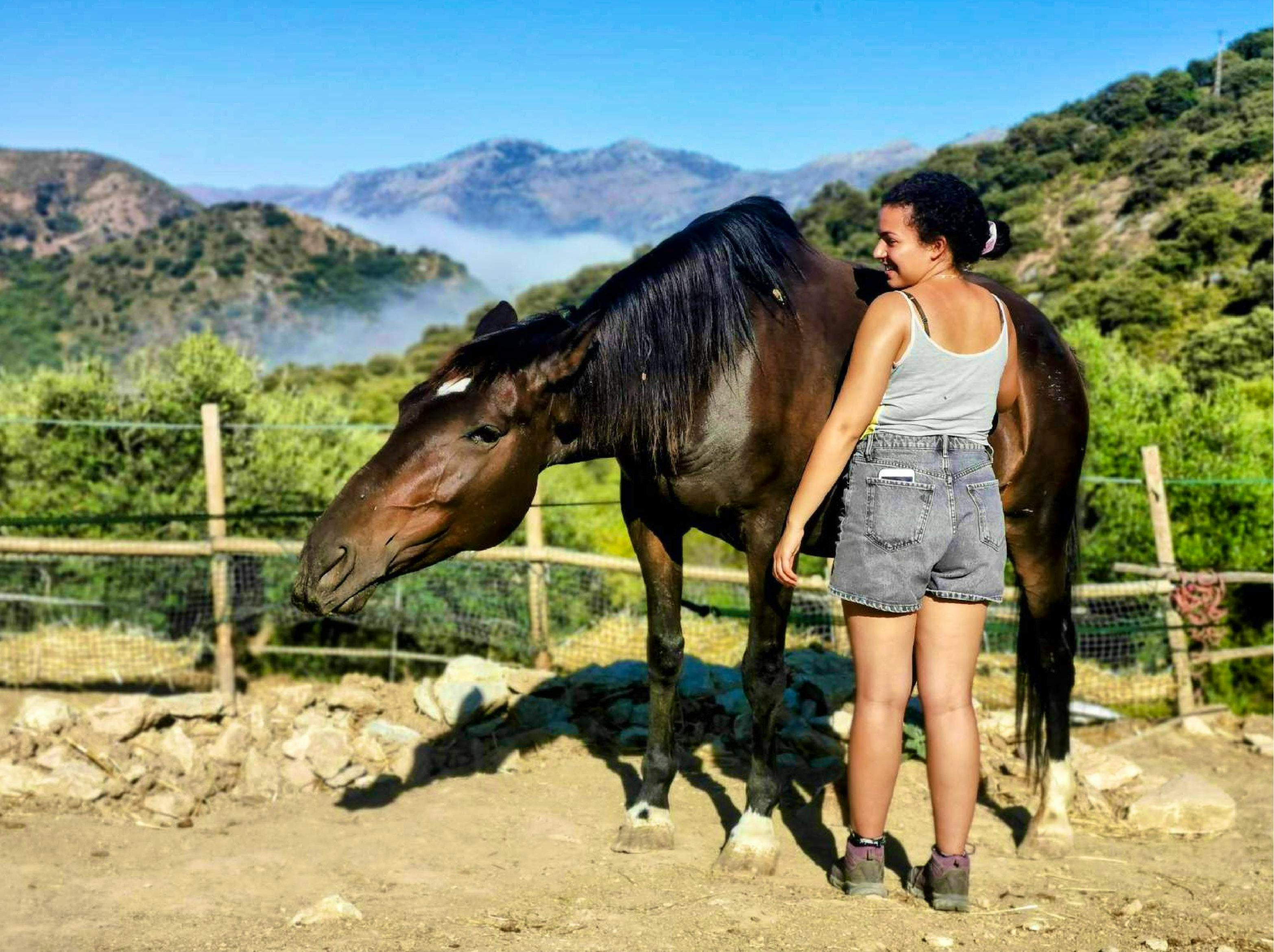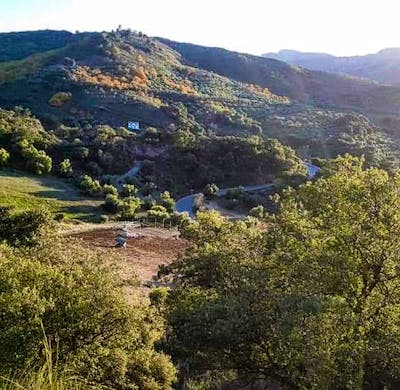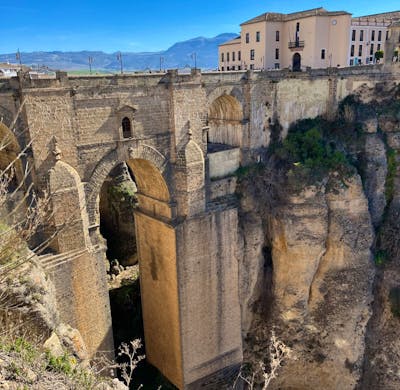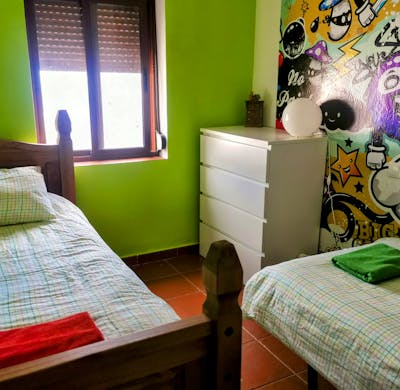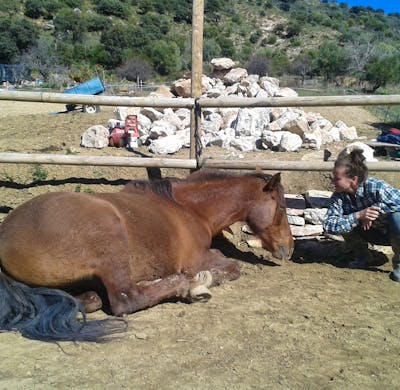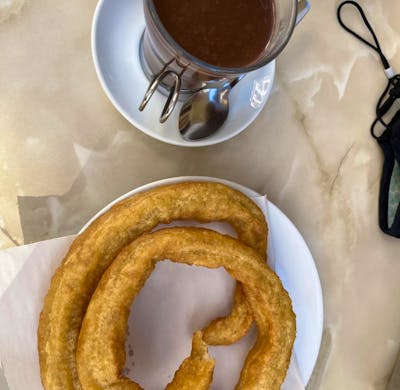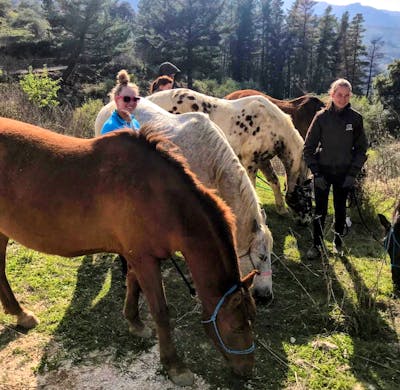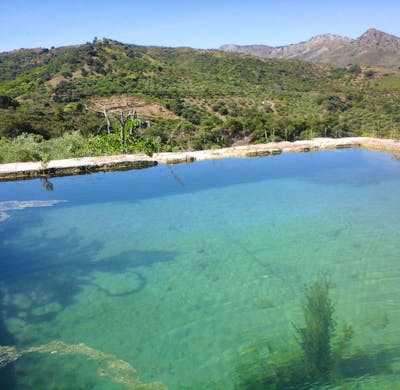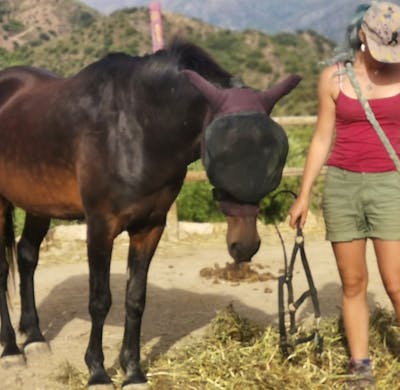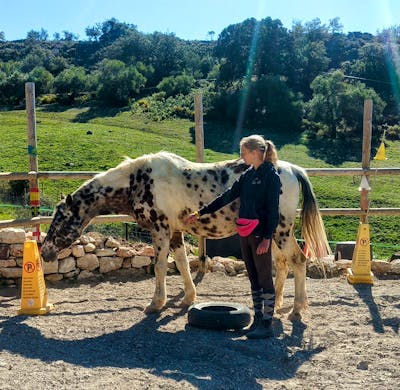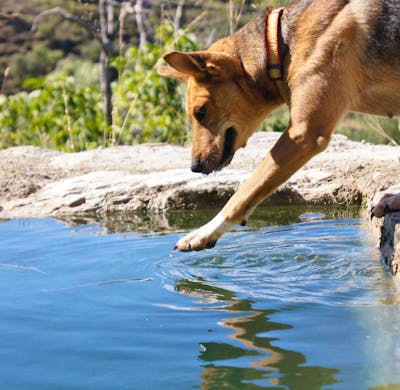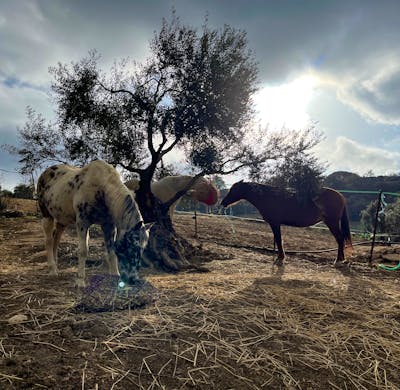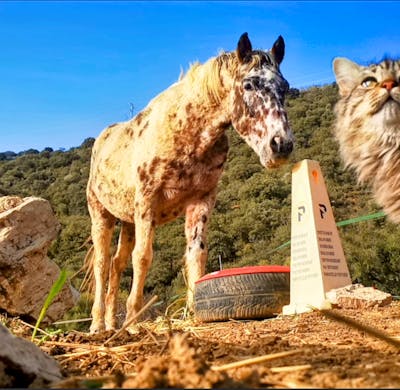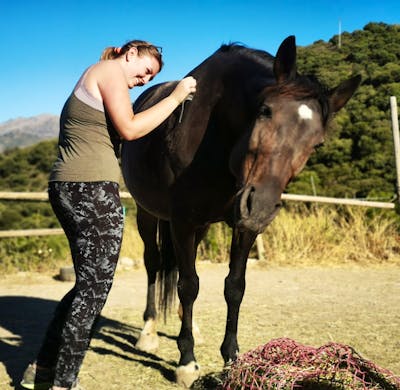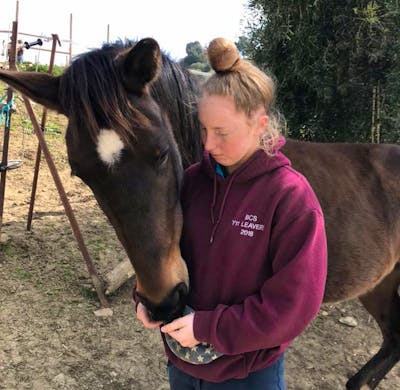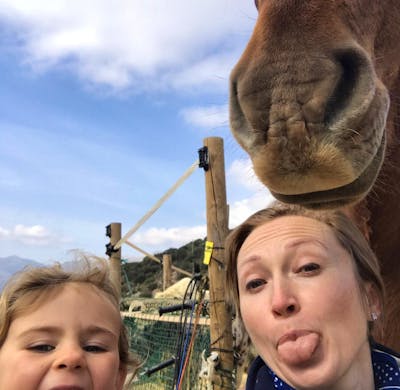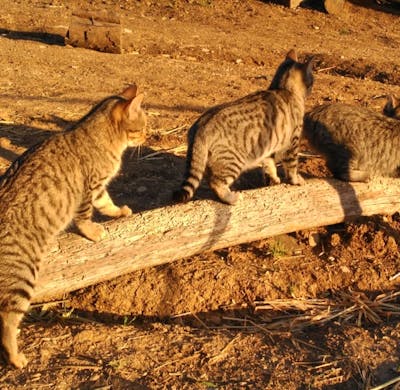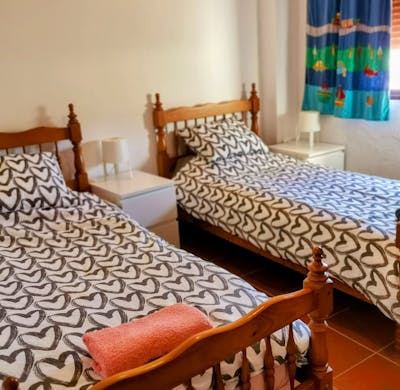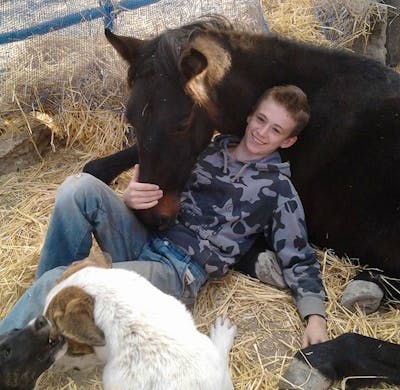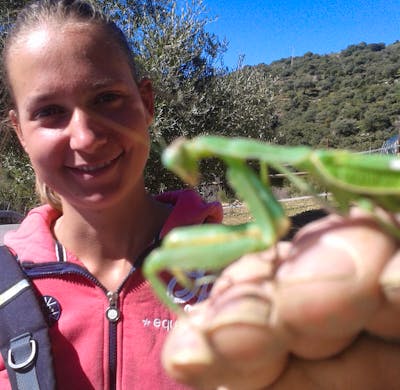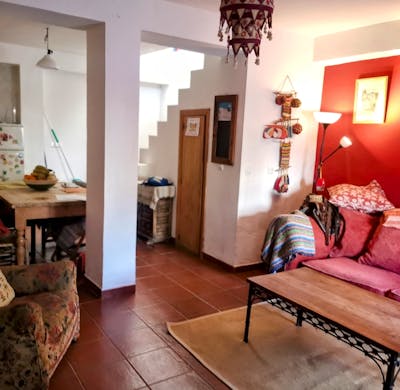Force-Free Equine Sanctuary Assistant programme: Experience the Magic of Compassionate Horsemanship
Are you passionate about horses and eager to make a positive impact on equine welfare? Join our incredible Force-Free Equine Sanctuary Programme, where you'll become part of a dedicated team caring for our beautiful herd of horses. Through positive reinforcement and force-free horsemanship skills, you'll help improve the lives of these magnificent animals and contribute to the success of our sanctuary.
Why Volunteer with Us?
Volunteering at Time and Space Equine Education Sanctuary is an extraordinary opportunity to immerse yourself in the world of horses and witness the profound impact of our mission. You'll gain firsthand experience of our efforts to create a nurturing environment for these horses, allowing you to glimpse the significant difference we are making.
In our well-rounded programme, learning and hands-on work seamlessly blend together. Many of the most meaningful insights come from observing the horses during their feeding times and while tending to their fields.
Discover the Beauty of Horse Communication and Behaviour Change.
During this programme, each applicant will be warmly welcomed into our horse training sessions, where they will embark on a journey of discovery and learning. We believe in equipping our participants with the essential skills to handle and befriend these gentle creatures responsibly and compassionately. Starting with a foundation of handling skills, you'll progress through our carefully crafted curriculum to master the art of scientific behaviour change and effective communication with the horses. We aim to work collaboratively with the horse, ensuring they choose to join us rather than being coerced.
Our experienced instructors will guide you through various training exercises and techniques, encouraging you to observe and interpret the horses' responses. You'll learn to read their body language and understand their emotions, deepening your ability to connect with them on a profound level. Throughout the programme, you'll have ample opportunities to put theory into practice, fostering a hands-on approach to learning that ensures your growth as a skilled and empathetic horse trainer or friend.
Our horsemanship sessions are a profound learning experience that extends beyond conventional training methods. We offer guided training sessions designed to help horses recover from trauma and actively participate in their welfare needs. During these sessions, we engage in various activities, such as putting on fly solution, fly masks, or blankets, administering medication, or brushing manes, all while attentively considering the horse's emotional well-being.
One of our core principles is to lead the horses without the need for halters and ropes, promoting a deeper level of trust and connection. We work to change the horses' perspective of humans so that they not only tolerate but genuinely enjoy being touched and handled. Through patient and compassionate interaction, we help them overcome any fears they may have, ensuring they feel safe and secure in their environment.
Our unique approach also involves training a consent protocol, allowing the horses to play an active role in their interactions. This helps them desensitise to fears, enjoy the training process, and gain a sense of control over what does and doesn't happen to them. By respecting their boundaries and preferences, we foster a relationship built on mutual understanding and respect.
In addition to the guided training sessions, you'll also gain valuable insights through hands-on work during feeding times and field cleaning. As we prioritise the horse's feelings and responses, both scientific behaviour change and gentle understanding guide our approach. Our ultimate goal is to create a harmonious partnership with the horses, where they willingly choose to join us in their journey, rather than feeling coerced or forced.
Through our holistic approach to horse communication, you'll witness a transformation in how you interact with these majestic creatures, creating a bond that goes beyond conventional training techniques. Join us for an unforgettable experience that will deepen your connection with horses and expand your understanding of their emotional world.
As you progress, you'll witness the transformation of both the horses and yourself. The profound bond that forms between you and these magnificent animals will inspire and motivate you to pursue a path of compassionate horsemanship. Our aim is not only to teach you how to train horses but to instil in you a lifelong passion for their well-being and welfare.
Join us in this transformative journey, and together, we'll explore the beauty of horse communication while creating a positive impact on the lives of these incredible creatures. Whether you are a seasoned equestrian or new to the world of horses, our programme offers a life-enriching experience that will stay with you forever.
Rest assured, our approach does not involve horseback riding at the moment. Instead, we focus on nurturing strong bonds and understanding the science behind our techniques.
Horse Interaction
We ask all volunteers and visitors to refrain from touching the horses until they receive proper training. This is crucial for specific and essential reasons, which we'll be happy to explain during your time with us.
About Us and What to Expect
We are a small association committed to self-sufficiency and harmonious coexistence with nature and animals. Our sanctuary is home to two rescue dogs, various rescue cats, and a herd of six horses, with others off-site at various times. We rely on the support of nature lovers and compassionate individuals like you to help our project thrive.
Nestled in a friendly mountain village of just 150 people, our sanctuary embraces diversity and warmly welcomes everyone, regardless of language barriers.
You'll be part of an English-Spanish family, experiencing a delightful fusion of two cultures and languages. Our team is led by Clare and her partner Chico, each with a unique set of skills and experience. Chico, a native Spanish speaker, oversees the gardens and building projects, usually in a mix of English and Spanish. While Clare passionately guides the horse training sessions, in English, and with the invaluable support of other volunteers.
Throughout the year, volunteers of all ages and backgrounds come together to form a vibrant community. Whether you prefer a more social experience or a focused horsemanship journey, we have something special in store for you.
Working with Us: Rewarding and Challenging
Be prepared for a hands-on experience that requires physical effort. While we welcome volunteers from all walks of life, a hard-working attitude is a great fit for our programme. If you have specific needs or disabilities, please let us know in advance so we can discuss how to accommodate you.
As part of our big family, animals and children are an integral part of our daily lives. So, if you share a love for them, you'll feel right at home. Younger volunteers are also welcome, as long as they come with parents or guardians.
Embrace a Diverse Range of Activities
We always have room for helping hands, whether you're assisting with general care and maintenance, ensuring our horses' happiness, or helping with promotion. No matter your skills, there's a place for you to make a difference.
Experience the joy of working in our Equine and Sustainable Sanctuary Programmes, offering the perfect work-life balance with up to 25 hours per week dedicated to fulfilling and enriching experiences.
If you find yourself drawn to the world of horses, explore our Force-free Equine Assistant programme, where you'll have the chance to work alongside these wonderful creatures, caring for them and collaborating with them.
Prefer a focus on gardening and construction without involvement in horse training? Our Sustainable Sanctuary Programme is the perfect fit. Embrace sustainable living and engage in the art of building and gardening within the tranquil setting of our sanctuary, enriching the environment for the horses and their volunteers.
Whichever path you choose, fulfilment and meaningful experiences await. Unleash your potential today!
Embracing a Different Way of Life
Volunteering with us offers more than just the chance to learn through our dedicated programmes. It's an opportunity to immerse yourself in a unique culture and experience a sustainable way of living. Our focus on ethical practices and sustainability extends to everything we do.
Accommodation and Practical Details
In the village, you'll find comfortable accommodation with amenities such as beds, bedding, towels, heating, a bathroom with modern facilities, and a well-equipped kitchen with a washing machine. While the electric supply might momentarily cut out if many appliances run simultaneously, the rustic charm of the place will make up for it.
Please note that smoking is not allowed inside the accommodation. The tap water is drinkable, and you can also bottle your water from a natural source in the village. As part of our sustainable practices, we don't provide bottled water.
Grocery Shopping & Budget
We ensure that all volunteers have access to essential items by providing an extensive, predetermined shopping list each week. As there's no village shop, we make a weekly trip to town, just a 30-minute drive away. On your days off, you can venture into town by bus or taxi for further exploration. While you're welcome to add personal items to the list, kindly note that you'll be responsible for covering the cost.
Sustainability & Diet
Our commitment to sustainability extends to our food choices. We prioritise buying seasonal fruits and vegetables and avoid products containing palm oil, meat, or fish. However, if you have specific dietary preferences, you can enjoy these items at local bars at your own expense. We respect various dietary choices, which is why we don't include meat on the shared kitchen's menu. Instead, you'll find a recipe folder to inspire you with delicious meals from our usual items.
Accommodation & Connectivity
The main volunteer accommodation offers limited WiFi connectivity. In case it's fully booked, we arrange alternative lodgings in a family-friendly bar and hostel, where WiFi might not reach the rooms consistently. If internet access is essential for you, consider checking with your service provider before your arrival or purchasing a Spanish SIM card during your day off.
On the Project Site
Hydration is vital during work, so remember to bring a water bottle to refill from our natural water source on-site. While the main work area is a bit further down the land, please be prepared to walk uphill to refill your bottle, especially during the summer. Smoking is not allowed on the project site due to fire risks.
Nature Bathrooms
On the project site, you'll find a bathroom in a natural setting. For peeing, there are designated hidden spots. Solid waste is managed through a compost toilet system, where everything is collected in a wooden box and covered with compostable material. Rest assured, you won't be responsible for emptying the compost; we take care of that for you!
Dive into Other Areas of Interest
Throughout your stay, you can delve into various activities, such as cooking, language exchange, learning about hoof care, and gardening. It's a chance to grow and explore diverse skills and interests.
Join Our Force-Free Equine Sanctuary Programme
If you have a deep love for horses and a passion for promoting their welfare, this volunteer programme is the perfect fit for you. Become part of our caring and enthusiastic team, and experience the magic of force-free horsemanship while contributing to a remarkable cause. Together, we'll make a difference in the lives of these magnificent creatures and foster a harmonious environment for both humans and animals alike.
Don't miss out on this extraordinary opportunity to learn, grow, and experience a different way of life. Apply now and join us on this rewarding journey at our Force-Free Equine Sanctuary Programme.
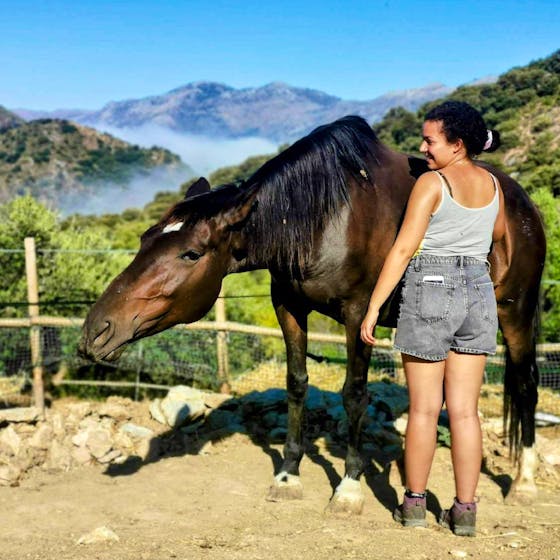
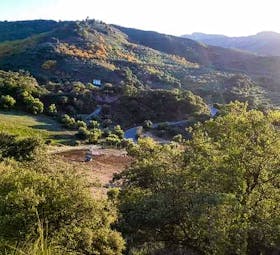
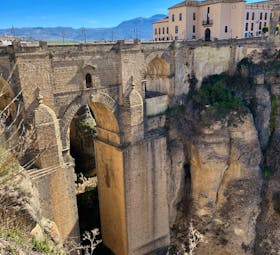
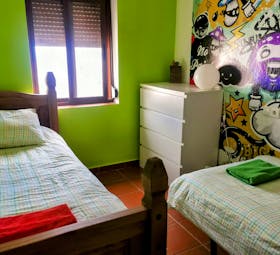
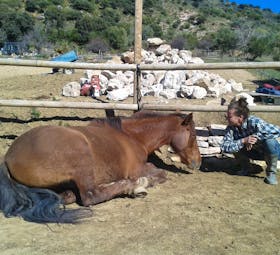
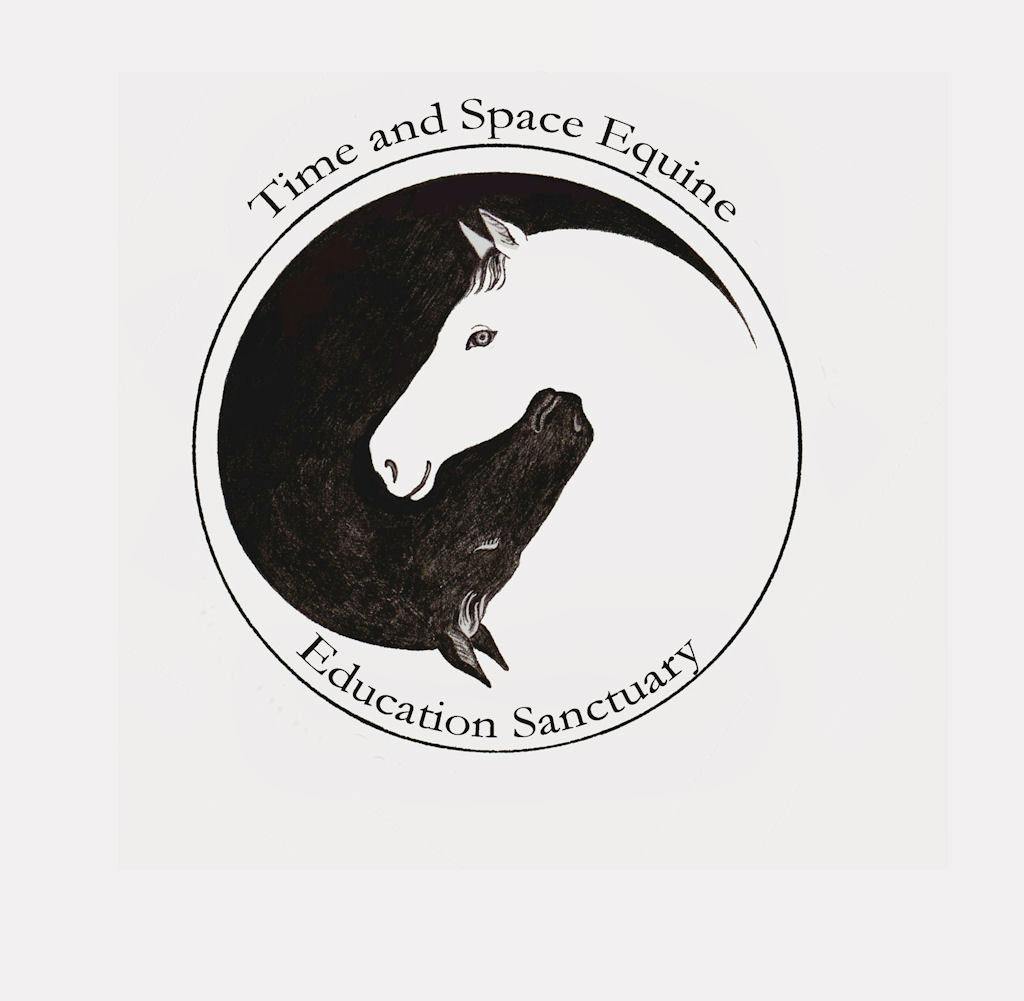
 4.7
4.7

